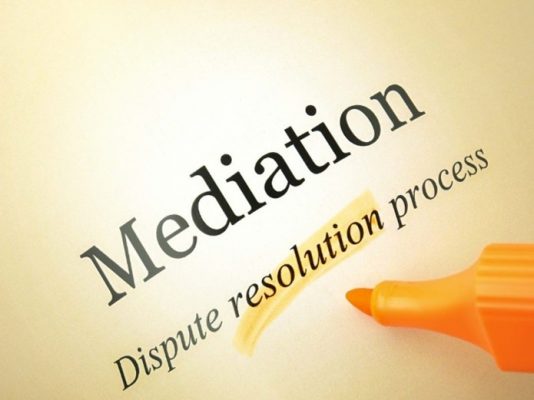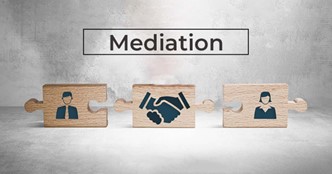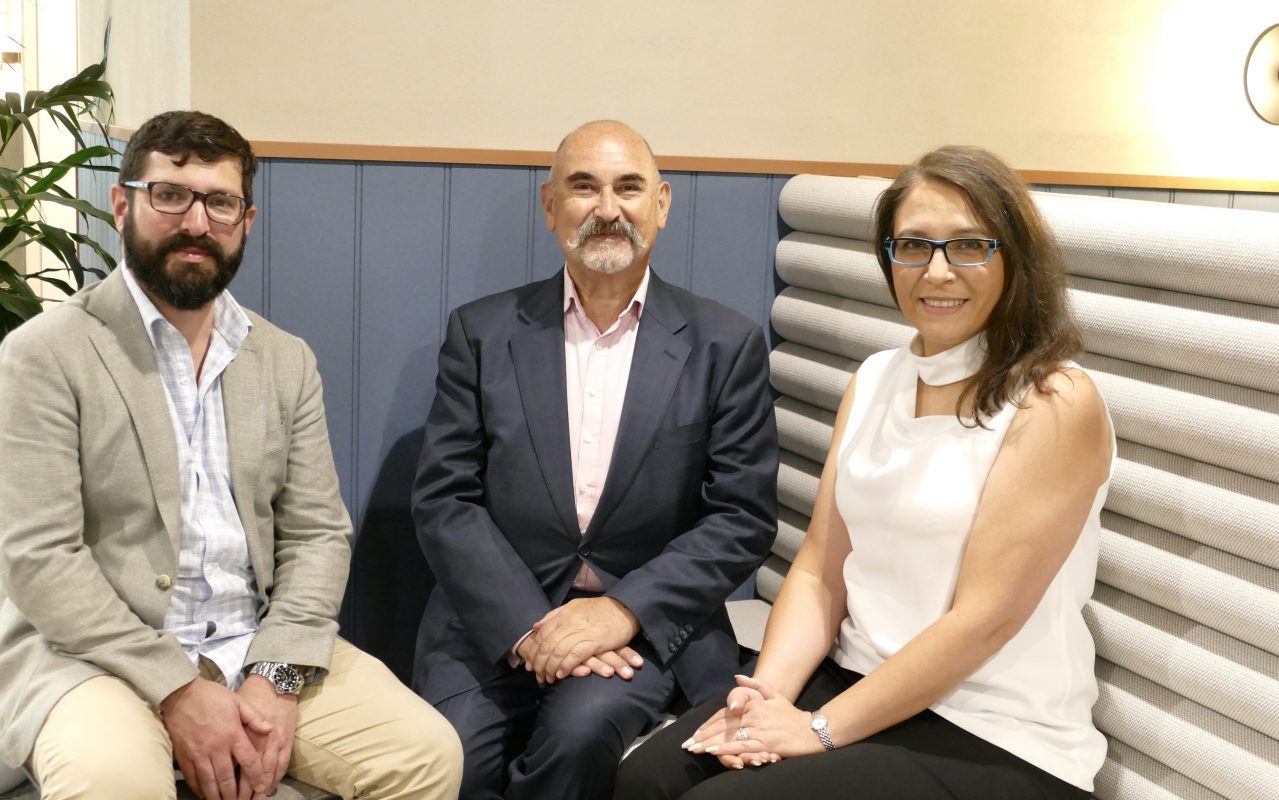WHAT IS THE MEDIATOR’S BACKGROUND?
Barry Berger
Barry Berger is a Family Law Accredited Specialist, Collaborative Lawyer, NMAS Accredited Mediator and Arbitrator.
Barry Berger is one of Australia’s most experienced family lawyers and is known in the profession for giving strategic legal advice in complex family law matters, an innovator in collaborative law and alternative dispute resolution, and a champion of value-priced offerings.
Barry is one of the Directors and co-founders of Dignity.edr. He graduated from Monash University with a Bachelor of Economics (1972) and Bachelor of Laws (1974). Throughout his 48 year career, Barry was the co-founder and Managing Partner of Berger Kordos Lawyers and prior to that he was the Head of the Family Law Department of Home Wilkinson Lowry which subsequently became HWLE.
Barry is committed to helping people effectively find workable outcomes and practical resolutions at all stages of their relationship. Barry is always looking at new ways to reinvent how to achieve family law resolutions effectively.
As a mediator, Barry’s focus is on providing clients a secure negotiation environment is which they are asked to make some important decisions for themselves. All clients are treated with respect and empathy.

Leon Berger
Leon Berger has over 18 years’ experience in relationship and family law and 12 years as an LIV Accredited Specialist. Leon is known in the profession for his sensible, calm, strategic and pragmatic approach to complex family law matters. As a seasoned family law litigator, Leon is determined change the approach to relationship and family law matters by designing people centred resolution processes focusing on maintaining civility and dignity beyond separation.
Leon is one of the Directors and co-founders of Dignity.edr. Leon was a former Partner of Berger Kordos Lawyers and graduated with a Bachelor of Laws (2002) from Bond University and Graduate Diploma of Legal Practice (2004) from Leo Cussen Centre for Law. He is an NMAS Accredited Mediator, and is in the process of obtaining his accreditation as a Family Dispute Resolution Practitioner.
Leon views the best approach to relationship and family law matters is to find resolutions outside of the courtroom.
As a mediator, Leon’s focus is on providing clients a secure negotiation environment is which they are asked to make some important decisions for themselves. All clients are treated with respect and empathy.

Athanasia Balaskas
Ms Athanasia Balaskas (“Ath”) is a Family Law Accredited Specialist, Accredited Mediator and is Special Counsel at Dignity.EDR. Ath has over 19 years of extensive experience assisting clients across all aspects in family and relationship law.
Ath graduated from Deakin University with a Bachelor of Laws (2002), obtained her Specialisation in 2009, undertook Collaborative Law training in 2010 and in 2022, obtained her NMAS Accreditation as a Mediator.
Having been involved in an array of related litigation matters over the years has convinced Ath that there is a better way. She has a keen interest in effective dispute resolutions processes such as Mediation and Collaborative Law.
As a mediator, Ath’s focus is on providing clients a secure negotiation environment is which they are asked to make some important decisions for themselves. All clients are treated with respect and empathy.

WHAT IS MEDIATION?
Mediation is a confidential process whereby a trained and accredited mediator assists two or more people (and often their lawyers) who are in dispute, to negotiate a mutually satisfactory resolution to their dispute. It is a form of “assisted” or “facilitated” negotiation.
Mediation offers the parties (and the lawyers), a safe and secure environment in which to take the negotiations to the next level by introducing a neutral person (the mediator) into the discussion who manages the negation process and provides a level playing field for parties to explore settlement and reach common ground.
Neutrality – The mediator is trained, nationally accredited, and is neutral. This means that they have no interest in the outcome and do not know either party. Mediators have a family law legal background.
Confidentiality – Mediations are covered by the principal of confidentiality and all parties, their lawyers, the mediator and any third party support people are bound by confidentiality preventing them from disclosing the contents of discussions and proposals canvassed during the mediation without the consent of both parties and the mediator.

THE ROLE OF THE MEDIATOR
The mediator’s role includes controlling the mediation, facilitating discussion and generally assisting the parties to reach an acceptable agreement.
The mediator is not a judge and will not decide any issues in dispute.
The mediator is not there to offer legal advice to either party.
However, given the experience of the mediator, it may be of assistance in the negotiating process for the mediator to express an opinion, if asked, about the merits of the parties’ proposals in the context of considering what the outcome might be in the event that the matter proceeds to court. Any opinion expressed is not legal advice. The parties should take advice from their legal advisors.
THE ROLE OF THE PARTIES
The parties should involve themselves in the mediation to make a genuine effort to resolve matters in dispute.
The parties have the right to be fully informed and fully involved in the mediation.

LEGAL REPRESENTATIVES
Your legal advisor, if you have one, is there to protect your interests and to inform you of your entitlements at law. They may also help you identify the issues that are important to you, ensure that they are deal with the in the mediation, will assist you in the development of options and help you reality test proposals to ensure that you are comfortable with them and understand their implications. Your lawyer will also assist you in the negotiations, and can draw up any agreement if/when one is reached.
The mediator will likely point out the risk of taking the matter to court and the benefits of resolution in the mediation.
The mediator and your lawyer are likely to discuss with you your best-case and worst-case scenarios and the possible cost of achieving either.

WHAT EVENTS PRECEDE MEDIATION?
Typically (though every mediation process is varied), mediation involves the following steps:
- The Mediator is approached by a party or their lawyer with a request to assist (this can be due to a requirement of a Court that they attend mediation).
- The Mediator checks that both parties and lawyers agree to his/her appointment.
- If there is agreement, the Mediator sends to each person, information about costs and a Mediation Agreement.
- A time and place (often a neutral venue) for the meeting is arranged.
Most commonly mediators will meet with each party and their lawyer separately prior to the mediation. This is called an intake or pre-mediation session. These sessions assist the mediator in understanding what each party considers important, why negotiations may not have been successful to date and what each party is expecting from the process. It also allows the parties to ask questions about the process itself. Each party may also discuss matters with the mediator in the intake session, and advise which matters are to remain confidential from the other party and their lawyer.
Mediators will have had been provided with the relevant court documents so will be familiar with your case.
Everything that is discussed in any private meeting including the pre-mediation or intake is confidential and will not be disclosed by the mediator to the other party unless the mediator is specifically permitted by you to do so.
HOW IS THE MEDIATION CONDUCTED?
Generally, the parties attend a joint session where the process is explained, and the parties have the opportunity to tell the mediator and the other party what the mediation is about for them, and what they want to achieve.
Some mediations are conducted by separate sessions (sometimes referred to as “shuttle mediation”). These are normally conducted where there are safety issues, or one party does not want to be in the same room as the other party. In a shuttle mediation, the mediator will seek to have each party, through their lawyers, continue negotiations and seek an agreeable solution.
Often the matter simply proceeds through negotiation, by offer and counter-offer. Each of the parties is encouraged to propose possible ways to resolve each issue. An agreement may be pieced together, like a jigsaw puzzle.

WHAT CAN I EXPECT IN THE INTAKE SESSION?
It is important in this private session for the participants to be open with the mediator. Mediator and lawyers understand that parties often come to mediation impacted by certain emotions such as grief, fear or anger.
Mediations have more chance of success if everyone is feeling as much at ease as is possible. Mediators do not want people feeling intimidated or confronted by the process. The intake session helps the mediator work through these issues for the client as they will invariably have an influence on the way the party reacts to the mediation.
Anything that is discussed in the private meeting is confidential and will not be disclosed by the mediator to the other party unless the mediator is specifically permitted by you to do so.
The Mediator clarifies each party’s concerns and what issues they wish dealt with, and then tries to narrow down areas where the parties are in agreement or disagreement.
WHEN DOES THE NEGOTIATION STAGE HAPPEN?
This stage normally commences after the separate intake sessions and often only with the lawyers for the parties. The preparatory work for a negotiation process is done in a session where the mediators and lawyers identify the issues in dispute.
The role of the mediator is to control the process, have the lawyers feeling comfortable with each other, and to convey offers and make suggestions on framing of the offers.
The Mediator will seek to have each party through their lawyers, continue to make concessions from their position conditional on knowing that the other party will do the same – in other words a two way street. Often the matter simply proceeds through negotiation, by offer and counter-offer. In a non-confronting way, each of the parties is encouraged to come up with possible ways to resolve each issue.

CAN I TALK ABOUT THE MEDIATION SESSIONS WITH FRIENDS OR PROFESSIONAL ADVISERS?
During the mediation you will have ample time to speak to your lawyer, adviser or support person with or without the mediator present.
The mediation is a process which is not coercive. This is in stark contrast to the manner by which a case is determined by a Court, where the ability to discuss matters and have some control over outcome is taken away from the parties. A court is a structured hearing directed by a judge who makes a decision binding on the parties – the process is out of your control.
ARE ARRANGEMENTS REACHED AT THE MEDIATION BINDING AT LAW?
If agreement is reached the parties will be expected to sign either a Heads of Agreement document or final consent orders to be approved by the court, or other documents that then make the mediated agreement binding.
In some cases that cannot not occur at the mediation due to the need to take further steps or sign further documents to make the mediated agreement binding such as requirement to give notice to a superannuation Fund of a proposal to split superannuation benefits of a party, or for the parties’ lawyer to provide the required advice prior to the signing if a Binding Financial Agreement.

WHAT IF I FEEL UNCOMFORTABLE WITH THE MEDIATION PROCESS?
You can have a break at any time – no reason is needed. You may find that dealing with some issues will be confronting. You can ask to speak to the mediator alone. You can express your concern immediately and the Mediator will try to deal with it openly. Or, you can ask for the mediation session to be adjourned.
One of the Mediator’s tasks is to try to balance the negotiating strengths of each person and to minimise any feelings of intimidation.
WHAT DOES IT COST?
Mediators usually charge a “per day” or “half-day” rate. There may also be an hourly rate for matters that go past normal finishing times. If rooms are required to be hired for the mediation those costs are also shared. The mediator’s costs are set out in the Mediation Agreement signed by all participants.
FINALLY – SOME SUGGESTIONS
Try to relax when you get to the mediation – you probably won’t have slept well the night before – that’s not unusual.
Try not to come with preconceived ideas as to the outcome you must achieve. Be prepared to be flexible as you hear new information during the mediation.
You may already be frustrated with prior processes and feel negative and hopeless about achieving a positive outcome. Remember mediation on average settles about 4 out of 5 matters. Try to be positive and patient.
Try not to rush decisions – the mediation will be conducted in a structured way so there will be plenty of time to think through and discuss with your lawyer and the mediator the important decisions to be made. Tell the mediator about how you feel – it will help them gain a better understanding of what your needs and interests are.


